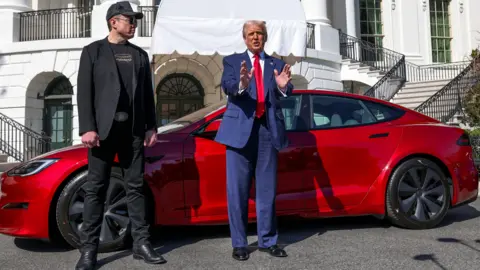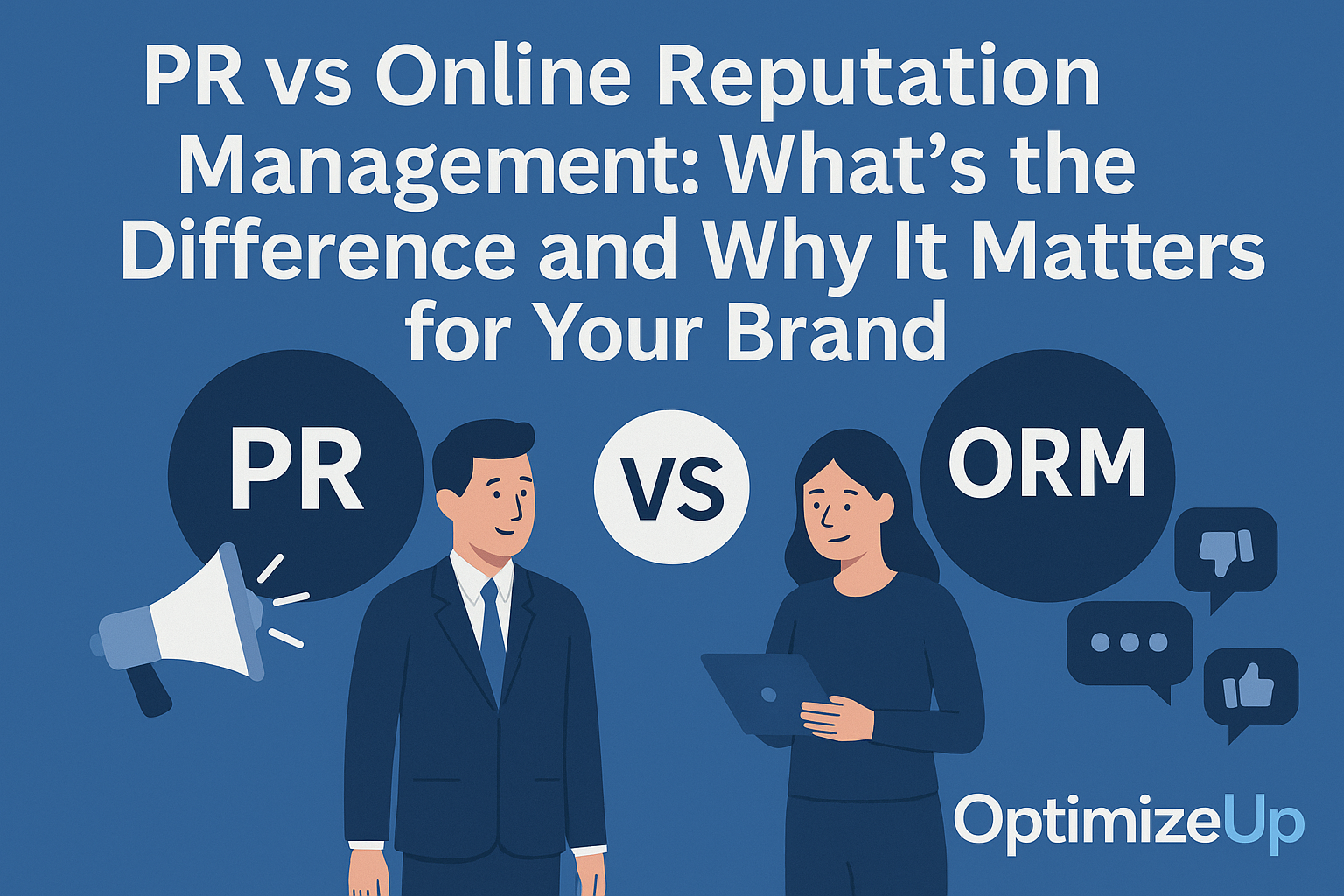Why the Musk-Tesla Fallout Is a Must-Study for Modern Brand Builders
By Joe Chierotti, OptimizeUp Founder & CEO
In 2025, Elon Musk gave the business world another vivid case study on how personal reputation directly impacts brand equity—sometimes faster and more dramatically than product launches, marketing campaigns, or even quarterly earnings.
At OptimizeUp, where we help companies protect and grow their online reputations, we see this as a pivotal moment. Musk’s recent political entanglements—particularly his leadership role in the Department of Government Efficiency (DOGE) under the Trump administration—and the ongoing Dogecoin confusion, delivered measurable financial and reputational fallout for Tesla.
It’s a reminder: Founders are brand assets—and brand liabilities. Here’s what happened, why it matters, and how brands can future-proof against similar risks.
The Timeline: How Musk’s Personal Moves Impacted Tesla’s Brand and Stock
| Date | Flashpoint | Immediate Effect | Lasting Impact |
|---|---|---|---|
| Nov 2024 | Musk named co-lead of DOGE by President Trump | Tesla shares fall 8% | Environmentalists and younger buyers turn sharply against Tesla |
| Feb 2025 | NPR reports ethics concerns over Musk’s DOGE role | #BoycottTesla trends on Twitter | Tesla’s favorability among Democrats drops to 10% |
| Mar 2025 | Trump limits Musk’s DOGE authority publicly | Minor stock recovery | Confirms internal tensions and ongoing distraction risk |
| Apr 2025 | Q1 earnings call: Musk promises to “spend far more time at Tesla and far less at DOGE” | Tesla stock jumps 6–9% | Signals to Wall Street a return to business focus |
Brand Perception Data Doesn’t Lie
- Tesla’s global deliveries fell 13% year-over-year in Q1 2025—the company’s first-ever annual decline.
- Tesla’s favorability among Democrats—their most crucial EV-buying demographic—dropped by 17 points after Musk’s political move.
- Surveys revealed that Tesla’s overall brand favorability fell from 41% to 33% between late 2024 and early 2025.
- Despite a rebound following Musk’s shift in focus, Tesla’s stock remains 40-45% below its December 2024 peak.
Key Lessons Every Brand Must Learn From Tesla’s Fallout
1. Personal Reputation is Corporate Reputation
Musk’s alignment with a controversial administration alienated core Tesla buyers, especially climate-conscious progressives and tech-forward younger consumers. In today’s environment, the public sees no separation between the personal moves of high-profile CEOs and the companies they represent.
🔹 Action: Brands must proactively monitor and manage the public actions and statements of their C-suite and founders. Personal narrative management is no longer optional—it’s critical brand management.
2. Political Polarization Shrinks Markets
Tesla’s customer base became polarized almost overnight. While Musk gained new admirers on the political right, those demographics were less aligned with Tesla’s sustainability-driven mission. Net result? A shrinking, fragmented market.
🔹 Action: Conduct values-based market segmentation. Understand the ideological leanings of your customer base and measure brand alignment regularly.
3. Executive Attention Is a Marketable Asset
Investors responded positively not because Tesla’s Q1 numbers were great (they weren’t), but because Musk promised to spend more time at Tesla and less at DOGE. Wall Street today prices executive focus as heavily as revenue growth.
🔹 Action: In earnings communications, explicitly outline where leadership focus will be over the next 90 days. Treat C-suite attention as a resource to be transparently allocated.
4. Winning a Lawsuit Doesn’t Erase the Stigma
Although Musk recently had the $258 billion Dogecoin manipulation lawsuit dismissed, the brand damage persists. Years of headlines connected Tesla to meme-coin volatility. Reputational “memory residue” lingers far beyond courtroom victories.
🔹 Action: Post-litigation, flood online channels with fresh, positive, third-party validated content (think: product demos, ESG ratings, industry awards).
5. Name Collisions Create Lasting Confusion
Musk’s government agency (DOGE) and the Dogecoin cryptocurrency (DOGE) sharing the same name amplified media noise and muddied public perception.
🔹 Action: Always perform a brand taxonomy audit before launching new brands, products, or initiatives. Check ticker symbols, slang, and SEO search patterns for conflict risks.
Reputation Management Framework for the Modern Era
| Risk | Proactive Move | Signal of Success |
|---|---|---|
| Executive side-hustles | Conflict-of-interest disclosures, governance limits | No media “surprises” linking CEOs to political or controversial ventures |
| Political entanglements | Bi-partisan messaging pillars | Stable sentiment across political lines |
| Legal wins | Immediate online reputation rebuild campaigns | Positive brand sentiment rebounds within 90 days |
| Executive distraction | Public focus allocation in investor updates | C-suite focus seen as aligned with brand mission |
Bottom Line: Attention is the Ultimate Brand Currency
Musk’s pivot to refocus on Tesla proves that investors and customers still value Tesla’s core mission—but it also exposed how fragile brand trust can be when leadership narratives drift off course.
At OptimizeUp, we believe every brand today must have a reputation resilience plan. In a world where the founder’s tweet can swing billions in market value, the cost of inaction is simply too high.
Let’s Future-Proof Your Brand
If your leadership team is growing in visibility or branching into new arenas (political, social, entrepreneurial), it’s time to ask:
- Is our narrative aligned with our customer values?
- Are we ready for political backlash if it comes?
- Have we built a fast-response reputation system that protects our brand when attention shifts?
👉 If the answer isn’t a confident “yes,” the team at OptimizeUp is here to help.
Drop us a line to schedule a brand resilience audit today.





